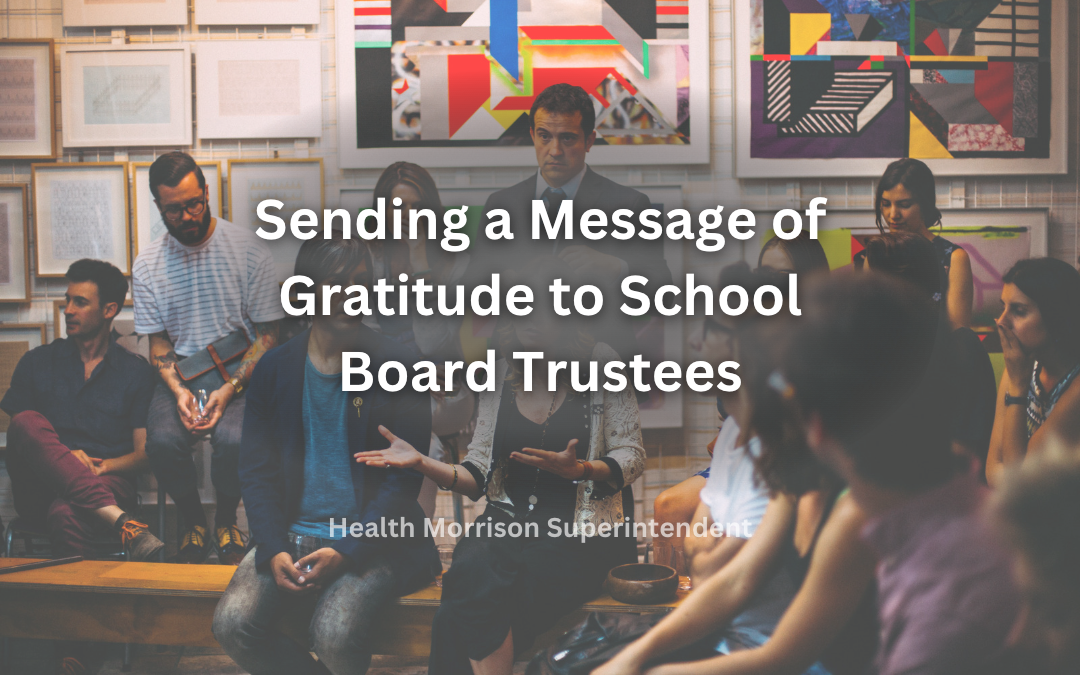Each January, school districts across the country acknowledge the work of their local school boards, comprised of the public servants who have committed themselves to governing school districts and advancing student achievement in the communities they serve. While it is always commendable for a school district and superintendent to model an “attitude of gratitude” for their school board, one could argue that no amount of appreciation bestowed on these amazing public servants would ever be adequate.
Over the past few years, school board members have been faced with tremendous challenges as they navigate a plethora of controversial topics in K-12 education. Amid constant headlines about school board meetings attended by a long list of public speakers ready to air their grievances about Critical Race Theory, library books, public health mandates resulting from the COVID-19 pandemic, and more, it would be easy to get the wrong impression about what school boards actually do.
In addition to the time they dedicate to meetings, phone calls and email correspondence related to the day-to-day governance and oversight critical to the operation of school districts, board members play a role in setting strategic direction of a school district, reviewing and approving budgets and maintaining an effective working relationship with the superintendent. And that’s truly just the beginning.
As esteemed members of the community, board members also understand the importance of maintaining constructive, hospitable relationships with each other and with district stakeholders. As they sit shoulder-to-shoulder with district stakeholders at church services, district events and performances, school board members are continually reminded of the areas where the school district is succeeding and where it could serve students better. Mindful of recent public scrutiny and politicization of school board activities across the nation, board members commit to keeping their focus solely on students and teachers, avoiding any situation where they must defend their support of the district through a political lens. Public school districts should never take for granted a school board made up of selfless individuals who love the kids and the communities they serve.
Effective boards are humble. They are open to self-reflection, willing to examine the impact of their leadership on the district’s goals. They are responsive to feedback, happy and willing to listen with a commitment to making continual improvements to positively impact their students and school district.
This January, I encourage you to join me in celebrating the servant-hearted individuals who are committed to the success of school districts across the country. Thank them for their expertise, guidance, diplomacy, and willingness to work toward the common goal of helping students grow, learn, and enjoy their educational experience. Thank them for advocating for student success and for making the difficult decisions. Most importantly, thank them for being everyday heroes and making our students’ success their priority.

